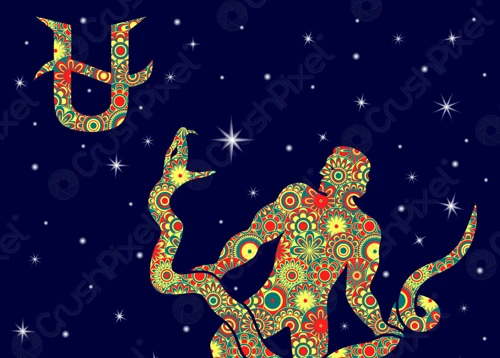The enigmatic and often misunderstood constellation of Ophiuchus has captured the curiosity of astronomers, astrologers, and mythology enthusiasts for centuries. Known as the Serpent Bearer, Ophiuchus is a symbol rich in mythology and symbolism. This article delves into the fascinating legends and tales surrounding Ophiuchus while also exploring its significance in astrology and culture. From the serpent intertwined in its symbol to its controversial status as the thirteenth zodiac sign, Ophiuchus continues to intrigue and mystify, leaving us pondering its profound influence on our understanding of the cosmos and our place within it.
The Legend of Ophiuchus
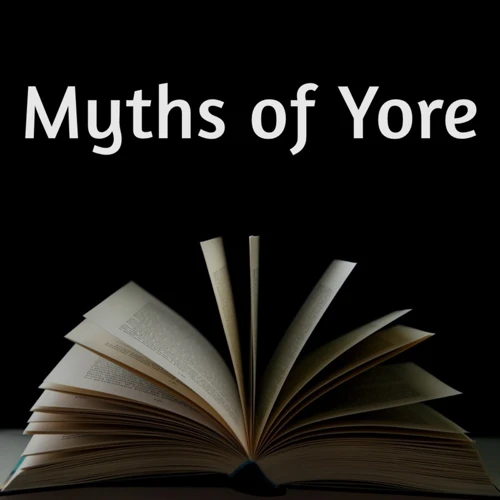
In the realm of ancient mythology, the legend of Ophiuchus holds a prominent place. This enigmatic figure is often associated with the Greek god Asclepius, the deity of healing and medicine. According to one popular myth, Asclepius possessed incredible healing powers bestowed upon him by the mighty Apollo. With his knowledge and proficiency in the art of medicine, Asclepius became renowned for his ability to cure the incurable, even reviving the dead. However, this remarkable gift soon attracted the attention and jealousy of Hades, the god of the Underworld. Uneasy with mortals escaping his realm, Hades complained to Zeus, the ruler of the gods, who ultimately decided to put an end to Asclepius’ extraordinary healing practices. In a display of divine justice, Zeus struck down Asclepius with a thunderbolt, transforming him into the constellation Ophiuchus. This immortalized the healer’s legacy and symbolized the balance between life and death. The legend of Ophiuchus serves as a reminder of the enduring fascination humans have had with healing and the quest for immortality. It stirs our curiosity to explore deeper into the hidden meanings behind celestial symbols and the interconnectedness of mythology, astrology, and human existence.
The Symbolism of Ophiuchus
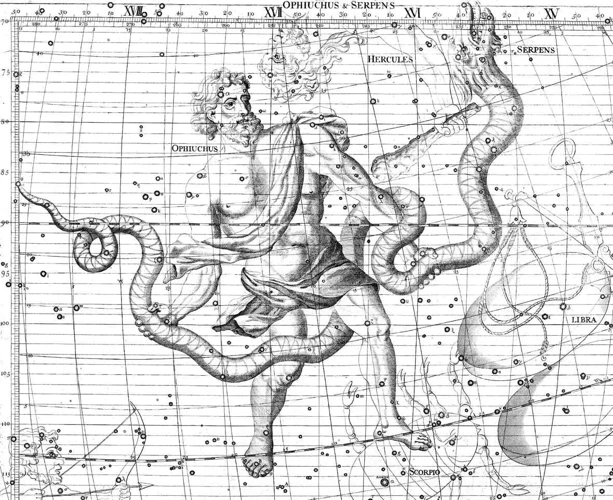
The symbolism of Ophiuchus is deeply rooted in both Greek mythology and astrology. One of the most prominent symbols associated with Ophiuchus is the image of a serpent intertwined. This representation signifies the eternal cycle of life, death, and rebirth. The intertwining of the serpent also represents the balance and harmony between these contrasting forces. The serpent has long been a symbol of wisdom, healing, and transformation in various cultures. In relation to Ophiuchus, it embodies the divine knowledge and healing powers attributed to Asclepius, the Greek god of medicine. Ophiuchus is also closely associated with the Rod of Asclepius, a visually striking symbol featuring a serpent coiled around a rod, which has become synonymous with the medical profession. This association further emphasizes the healing and transformative aspects of the constellation. The symbolism of Ophiuchus invites us to delve deeper into the hidden meanings of zodiac symbols, unraveling the rich tapestry of celestial symbols that have evolved throughout history.
1. Serpent Intertwined
The symbol of Ophiuchus features a captivating motif – a serpent intertwined. This imagery holds significant meaning and can be interpreted in various contexts. In mythology, the serpent has long been associated with knowledge, wisdom, and transformation. It is a potent symbol representing both the primal and the divine. The intertwining of the serpent in the symbol of Ophiuchus further enhances its complexity. This intricate entwining suggests a harmonious connection between different forces or energies, representing the delicate balance between life and death, creation and destruction. The serpent’s coiled form signifies its potential for awakening and renewal, while also reflecting the cyclic nature of existence. It serves as a reminder that growth and transformation often emerge from the intertwined threads of opposing forces. In astrology, the serpent intertwined in Ophiuchus’ symbol signifies the individual’s potential for healing, rebirth, and personal transformation. It encourages embracing the duality of life and embracing the power of change. The symbolism of the serpent intertwined in Ophiuchus’ symbol invites us to unravel hidden meanings and delve into the deeper significance of zodiac symbols, fostering a deeper understanding of ourselves and the world around us. To learn more about the mysteries of celestial symbols, you can explore the fascinating link between astrology and mythology in the article “Unraveling the Hidden Meanings of Zodiac Symbols“.
2. The Healing Serpent
At the heart of the Ophiuchus symbol lies the mesmerizing image of the healing serpent. This captivating motif has ancient roots, tracing back to various cultures and mythologies throughout history. In Greek mythology, the serpent is intertwined with the story of Ophiuchus, representing both wisdom and healing. The snake, often depicted coiled around a staff, symbolizes the shedding of old skin and the process of transformation. This powerful imagery of the serpent embodies rejuvenation, regeneration, and the cycle of life. In ancient Egyptian culture, the serpent was revered as a symbol of healing and protection, associated with the mighty god Ra. The concept of the serpent as a symbol of healing is not confined to mythological narratives alone. It spans across different civilizations and belief systems, asserting the universal recognition of the snake’s association with medicine and restoration. Today, the healing serpent image in the Ophiuchus symbol continues to intrigue and captivate, inviting us to explore the historical evolution of celestial symbols and unravel the hidden meanings they hold. To learn more about the fascinating enigma of Ophiuchus and debunk misconceptions surrounding it, check out our article on “The Ophiuchus Enigma: Debunking Misconceptions” [insert relevant anchor link to /the-ophiuchus-enigma-debunking-misconceptions/].
3. The Rod of Asclepius
The Rod of Asclepius is a powerful symbol associated with healing and medicine. It is often depicted as a single serpent entwined around a staff or rod. This symbol has its roots in the legend of Asclepius, the Greek god of healing and medicine, who is typically portrayed holding this rod. The serpent represents wisdom, rebirth, and transformation, while the staff symbolizes authority and power. The Rod of Asclepius is distinct from the Caduceus, another symbol often mistakenly associated with medicine. The Caduceus, a staff with two serpents entwined and wings at the top, is actually associated with Hermes, the messenger of the gods. Despite this confusion, the Rod of Asclepius remains a recognized symbol of healing and is widely used in the medical field today. Its influence extends beyond its mythological origins, serving as a reminder of the profound significance of medicine and its role in restoring health and well-being. To understand the historical evolution of celestial symbols like the Rod of Asclepius, one can explore the fascinating connections between mythology and the cultural significance of these enduring emblems through time.
Ophiuchus in Astrology
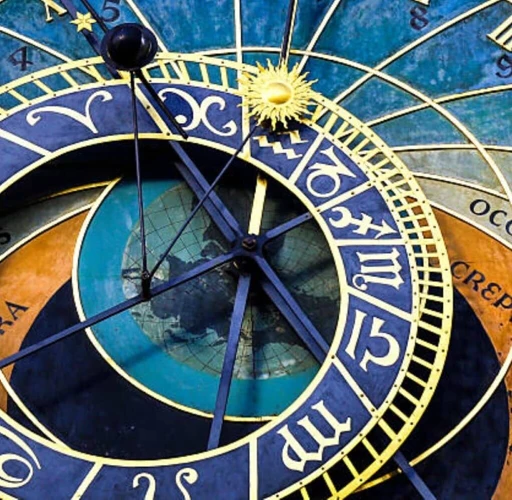
Ophiuchus has sparked both fascination and controversy within the realm of astrology. While traditionally, the zodiac consisted of twelve signs, Ophiuchus emerged as the thirteenth sign, challenging the established astrological system. Its inclusion in astrology is attributed to the shifting alignment of celestial bodies over time. Ophiuchus is believed to represent traits such as wisdom, healing, and spiritual transformation. Individuals born under this sign are said to possess strong intuition, exceptional healing abilities, and a desire for knowledge and spiritual growth. Despite its growing recognition, Ophiuchus remains a subject of debate among astrologers, with some embracing its influence and others disregarding its significance. Understanding the historical evolution of celestial symbols is crucial in unraveling the complexities surrounding Ophiuchus’ place in astrology.
1. Discovery and Controversy
The discovery and controversy surrounding Ophiuchus as a zodiac sign has been a topic of much discussion among astrologers and astronomers. While the twelve zodiac signs we are familiar with have been in use for centuries, Ophiuchus entered the spotlight in more recent times. It was in the 1970s that the astronomer and astrology enthusiast Stephen Schmidt reintroduced Ophiuchus as a thirteenth zodiac sign in his book “Astrology 14”. His argument was based on the actual alignment of constellations in the sky and their positions in relation to the dates of the zodiac signs. This revelation sparked a debate within the astrology community, with some embracing the inclusion of Ophiuchus as a necessary update, while others vehemently rejected it, citing tradition and the established system. Despite this controversy, it is important to note that the zodiac signs used in astrology are not directly tied to the constellations, but to segments of the ecliptic. This distinction has led to a continued separation between the astrological zodiac and the constellations in the sky. The historical evolution of celestial symbols sheds light on the intricacies of astrological interpretation and the ongoing debates surrounding the inclusion of Ophiuchus as a thirteenth zodiac sign.
2. Traits and Characteristics
2. Traits and Characteristics:
The astrological interpretation of Ophiuchus is a subject that sparks intrigue and controversy among enthusiasts. Individuals born under this sign are believed to possess a unique combination of traits and characteristics. Ophiuchus is associated with wisdom, healing, and knowledge, reflecting the influence of the mythological figure it represents. People born under this sign are often seen as intuitive and insightful, with a deep understanding of the human condition. They are natural healers and possess a strong desire to bring harmony and balance to those around them. Ophiuchus individuals are known for their thirst for knowledge, constantly seeking to expand their understanding of the world. They have a magnetic and charismatic presence, drawing others towards them with their wisdom and empathetic nature. The historical evolution of celestial symbols has contributed to shaping the perception of Ophiuchus and its traits, demonstrating the fascinating connection between astrology and the broader human experience. (Source: historical-evolution-celestial-symbols)
3. Compatibility and Influence
3. Compatibility and Influence
When it comes to astrology, understanding the compatibility and influence of Ophiuchus can be a complex endeavor. As a relatively newly recognized zodiac sign, Ophiuchus lacks a long tradition of astrological analysis compared to the other zodiac signs. However, this does not diminish its potential significance.
In terms of compatibility, Ophiuchus is said to have traits that align with those born under the sign of Scorpio. Both signs share characteristics such as determination, intensity, and a magnetic charisma. This compatibility suggests that Ophiuchus individuals may find harmonious connections and deep understandings with Scorpios. Similarly, they may also have favorable relationships with other water signs, such as Cancer and Pisces, due to their emotional depth and intuitive nature.
In terms of influence, Ophiuchus is believed to possess a dynamic energy that can bring about transformation and healing. People born under this zodiac sign may have natural healing abilities and the capacity to offer guidance and support to others. They are often seen as compassionate, nurturing, and insightful individuals.
The inclusion of Ophiuchus as a zodiac sign introduces a fascinating aspect to astrological interpretations. It challenges traditional notions and expands the diversity of personalities and traits attributed to individuals born under particular signs. With its unique qualities and mysterious allure, Ophiuchus adds a layer of depth and intrigue to astrological understanding.
While the compatibility and influence of Ophiuchus are still matters of ongoing exploration and interpretation, it is clear that this additional zodiac sign has the potential to enrich our understanding of the human experience and provide new perspectives for self-discovery and personal growth.
The Influence of Ophiuchus in Culture
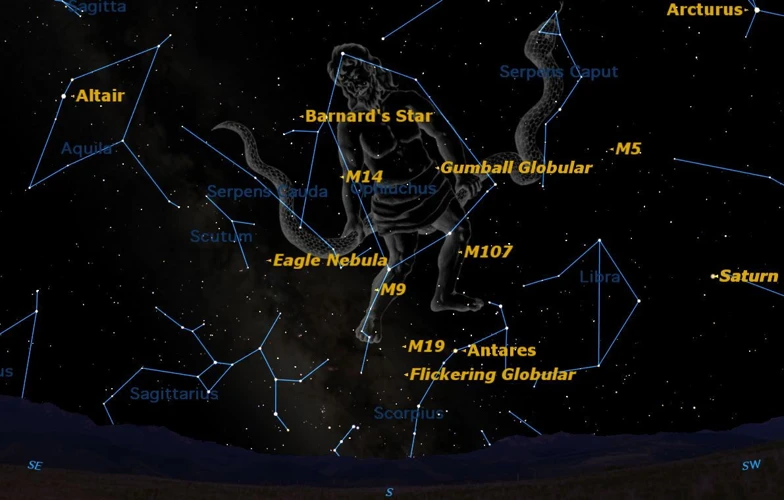
The influence of Ophiuchus extends beyond the realms of mythology and astrology and can be observed in various aspects of culture. One area where Ophiuchus has left its mark is in the field of art and literature. Artists and writers have been inspired by the symbol of the Serpent Bearer, incorporating it into their works. Ophiuchus’ association with healing and medicine has also been depicted in numerous paintings and sculptures, showcasing the importance of these themes in society. Ophiuchus has found its way into popular culture, appearing in movies, television shows, and even video games. Its mysterious and intriguing nature has made it a captivating subject for creative expression. Ophiuchus has influenced the fashion industry, with its symbol being incorporated into clothing designs, accessories, and jewelry. This reflects the enduring fascination with celestial symbols and their aesthetic appeal. The cultural influence of Ophiuchus serves as a testament to its significance and the profound impact it has had on human imagination and creativity.
Ophiuchus, the Thirteenth Zodiac
Ophiuchus, often referred to as the thirteenth zodiac sign, has sparked controversy and debate among astrologers and enthusiasts alike. While the traditional zodiac consists of twelve signs, Ophiuchus challenges this established system with its unique presence. The inclusion of Ophiuchus as a zodiac sign stems from the fact that the sun passes in front of this constellation for a portion of the year, just like the other zodiac signs. However, due to the 12-month calendar system in use, Ophiuchus is often overlooked. Those who advocate for Ophiuchus as a zodiac sign argue that its influence encompasses the time period of November 29 to December 17, resulting in shifts in personality traits and astrological predictions for individuals born within this time frame. However, skeptics of Ophiuchus as a zodiac sign point to its omission from traditional astrology charts and question the validity of its interpretation. The debate surrounding Ophiuchus as the thirteenth zodiac both intrigues and confuses astrology enthusiasts, urging them to delve into the historical evolution and interpretation of celestial symbols in order to seek a clearer understanding of this celestial enigma.
Conclusion
In conclusion, the mythology of Ophiuchus provides us with a glimpse into the rich tapestry of ancient beliefs and the intricate connections between celestial symbols and human stories. From the legend of Asclepius and his transformation into the constellation of Ophiuchus to the symbolism of the serpent intertwined in its symbol, Ophiuchus has captivated our imaginations for centuries. In astrology, the discovery and controversial status of Ophiuchus as the thirteenth zodiac sign has sparked debates and discussions around its traits, characteristics, compatibility, and influence on individuals’ lives. Furthermore, Ophiuchus has left an indelible mark on culture, inspiring art, literature, and even finding its way into pop culture references. While its place within the zodiac may remain contested, the allure and significance of Ophiuchus continue to fascinate and mystify. The exploration of this mythical and astrological entity invites us to unravel the hidden meanings behind celestial symbols, delve into the historical evolution of our understanding of the stars, and ponder the greater questions about our place in the cosmos. Ophiuchus, with its timeless enigma, reminds us that there is still much to be discovered and understood in the vast expanse of the universe.
Frequently Asked Questions
1. What is the meaning of the Ophiuchus symbol?
The Ophiuchus symbol represents a powerful figure, often associated with healing and medicine. It showcases a serpent intertwined around a staff, symbolizing the balance between life and death, as well as the intertwining journey of knowledge and wisdom.
2. How does Ophiuchus relate to astrology?
Ophiuchus is considered the thirteenth zodiac sign in astrology, although its inclusion is a subject of controversy. Those born under Ophiuchus are said to possess traits such as intuition, healing abilities, and a deep connection with spiritual matters.
3. Is Ophiuchus recognized in Western astrology?
While Ophiuchus is not officially recognized in Western astrology, there is a growing movement to include it. Some astrologers believe that this addition helps provide a more accurate representation of the zodiac and individuals’ astrological profiles.
4. Are there any famous figures associated with Ophiuchus?
Although traditionally overlooked, there are several notable figures believed to be Ophiuchus, including famous raters, healers, and individuals with a deep spiritual understanding. However, it’s important to note that astrological interpretations can vary.
5. What are the compatible signs for Ophiuchus?
Since Ophiuchus is not widely recognized as a zodiac sign, there is limited information on its compatibility with other signs. However, some astrologers suggest potential harmonious connections with Sagittarius and Libra due to shared traits and elements.
6. Can one’s zodiac sign change to Ophiuchus?
No, your zodiac sign does not change to Ophiuchus if you were born under a different sign. Ophiuchus is considered an additional sign, but it is not widely embraced by mainstream astrology.
7. Does Ophiuchus have a ruling planet?
As Ophiuchus is not officially recognized in traditional astrology, it does not have an assigned ruling planet. However, some astrologers associate Ophiuchus with celestial bodies like Pluto or Chiron.
8. Are people born under Ophiuchus more prone to certain health issues?
There is no scientific evidence to support the claim that individuals born under Ophiuchus are more prone to specific health issues. However, those who identify with Ophiuchus may have an affinity for healing and well-being.
9. Can the Ophiuchus symbol be found in other cultures?
While the Ophiuchus symbol is commonly associated with Greek mythology, similar serpent symbols can be found in various cultures worldwide. These symbols often carry diverse meanings, including rebirth, regeneration, and the cycle of life.
10. Does the inclusion of Ophiuchus change the dates for other zodiac signs?
No, the inclusion of Ophiuchus does not alter the dates assigned to the other twelve zodiac signs. The traditional dates for each sign remain the same, but individuals born between November 29 and December 17 may identify with Ophiuchus.

